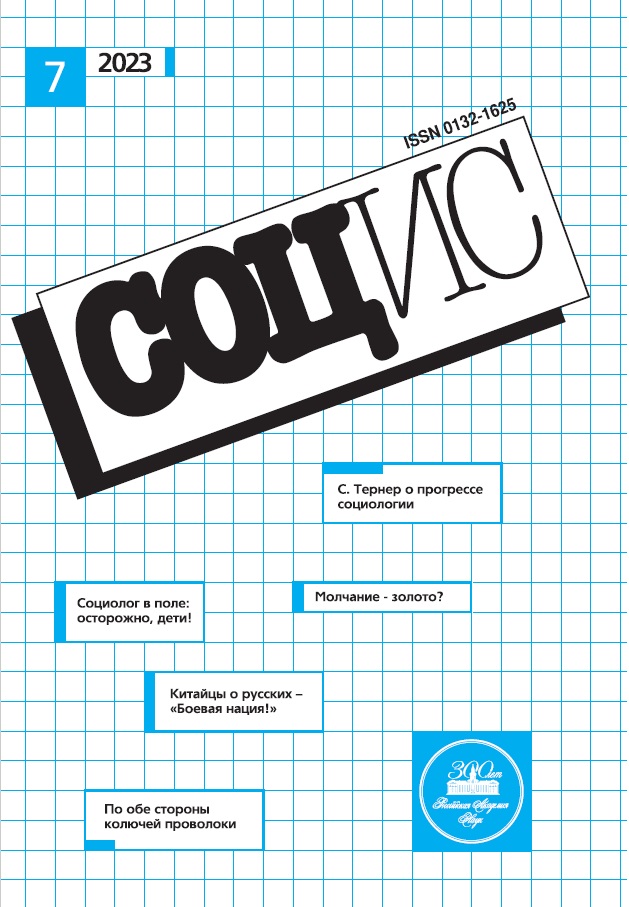Legal Consciousness of Youth Students (on the example of the Tyumen city)
- Authors: Vassalatiy S.V.1, Verkhoturova S.V.1, Losev S.G.1
-
Affiliations:
- Tyumen State University
- Issue: No 7 (2023)
- Pages: 133-141
- Section: Articles
- URL: https://rjonco.com/0132-1625/article/view/661798
- DOI: https://doi.org/10.31857/S013216250024236-2
- ID: 661798
Cite item
Abstract
Legal literacy is considered as a complex of cognitive, activity and motivational components of the consciousness of student youth. Data based on a questionnaire survey conducted in 2022 (N = 405). These results are compared with the data of the all-Russian survey "Legal Literacy of Russians" (2020), and supplemented by focus groups in the two largest universities in Tyumen. It was revealed that the students-respondents, in comparison with the population of Russia as a whole, have a more fully formed cognitive component and legal attitudes, but to a lesser extent - legal skills. Both among young and adult Russians, in certain situations, about half of the respondents consider breaking the law acceptable. The main institutions for the formation of legal literacy were the family and the education system, and to a lesser extent the media. Cluster analysis revealed six types of students with very different degrees of legal literacy. Types characterized by its high level accounted for only a quarter of the sample.
About the authors
Svetlana V. Vassalatiy
Tyumen State UniversityRussian Federation, Tyumen
Svetlana V. Verkhoturova
Tyumen State UniversityRussian Federation, Tyumen
Sergei G. Losev
Tyumen State UniversityRussian Federation, Tyumen
References
- Бондаренко М.В., Строева О.А. Правовые установки как детерминирующий фактор правомерного поведения субъектов права // Юридическая наука. 2018. № 3. С. 36–42
- Воронин М.Ю., Моисеенко Л.В., Ускова Т.В., Викулина М.А. Некоторые особенности правосознания и правовой грамотности в России и за рубежом // Вестник Санкт-Петербургского университета МВД России. 2021. № 4 (92). С. 18–26
- Покида А.Н., Зыбуновская Н.В. Правовые ценности современных россиян: приоритеты и противоречия // Социологические исследования. 2020. № 1. С. 92–99
- Черевко Т.С., Дунас Д.В., Толоконникова А.В. Новости в условиях интернетизации: анализ новостного потребления студентов // Вестник Московского университета. Сер. 10. Журналистика. 2018. № 1. С. 3–25.
Supplementary files










